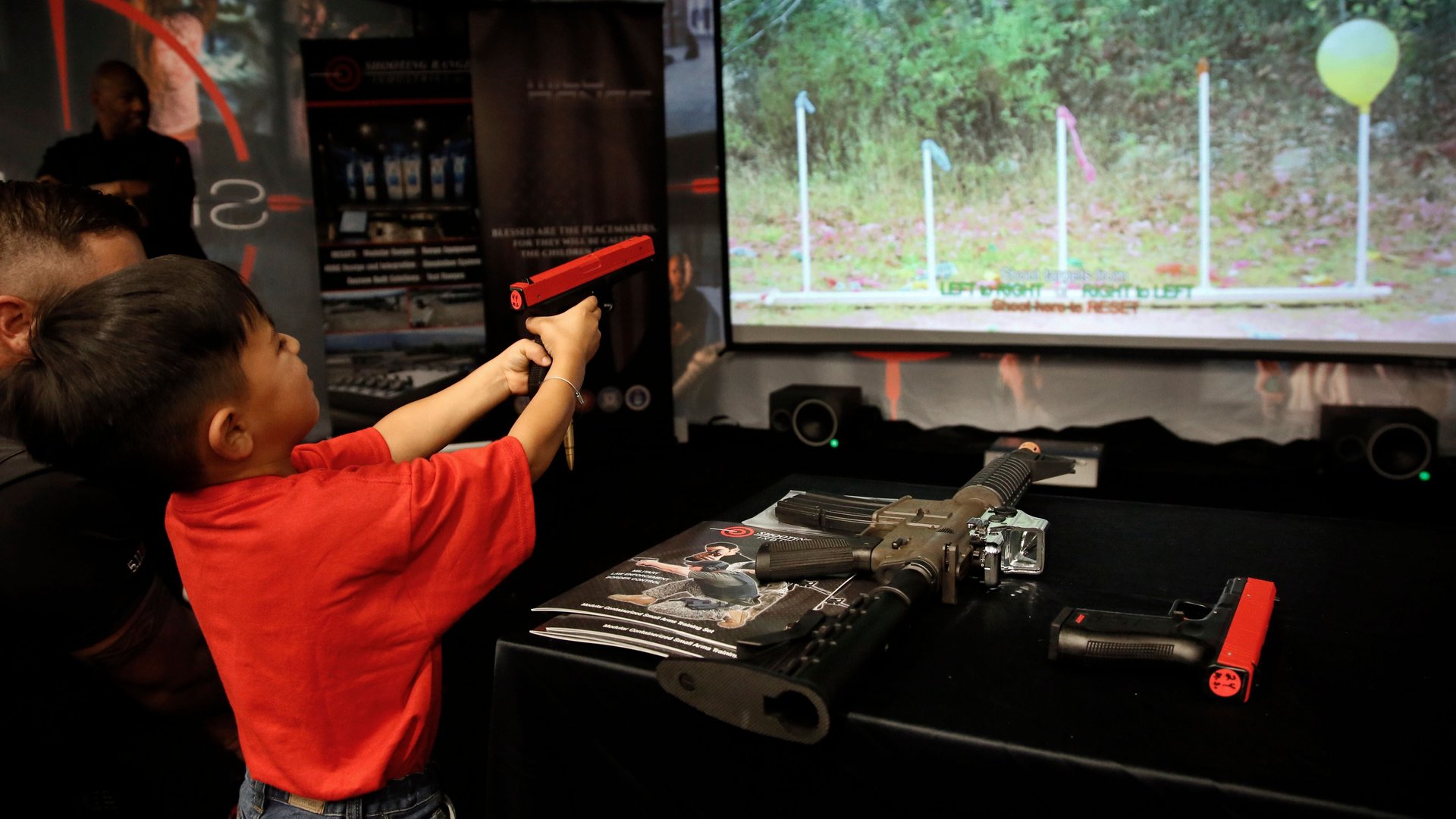The NRA’s biggest contribution to gun control is holding its annual convention
It’s firearms appreciation season again, as Donald Trump and Mike Pence have been delivering speeches for the audience of the National Rifle Association’s (NRA) annual conference.


It’s firearms appreciation season again, as Donald Trump and Mike Pence have been delivering speeches for the audience of the National Rifle Association’s (NRA) annual conference.
The event, which continues until tomorrow, is expected to draw more than 80,000 gun lovers to Dallas, Texas. The crowd fiercely opposes limitations to gun ownership as a threat to the second amendment of the US constitution, and America’s freedom.
There are many arguments that gun-rights activists like to bring up when debating against people demanding stricter regulations of gun access in America, from the classic “gun don’t kill people, people kill people,” to Trump’s latest claim that hospitals in London have turned into blood-soaked hells as a consequence of knifing where guns have been restricted, or that a way to prevent gun injuries and deaths is to have better training.
But research submitted to the New England Journal of Medicine by Anupam Jena, a Harvard researcher, seems to show one way in which the NRA actually helps. The annual NRA convention, when many thousands of skilled gun-owning people aren’t shooting them at home, is a time when gun injuries go down.
The study as pretty simple: It recorded the emergency room and hospital visits between 2007 and 2015 in three periods: in the days corresponding to the NRA convention, and control dates in the three weeks before and after the convention.
The study was designed to test the hypothesis that there would be reductions in firearm injuries consistent with the NRA demographic: amongst men, who are the vast majority of NRA members, and members of the state and the area where the convention was held, assuming more people would travel to the event from there. Jena found that the rate of firearm injuries was lower during the convention dates than it was in the control dates.
The reduction was especially high amongst men, in US states in the south and west, and in states that are in the top third for gun ownership. The study also that there was no significant difference in the percentage of crimes involving guns, leading to think of these mostly as accidental injuries.